I Think I Joined the Navy
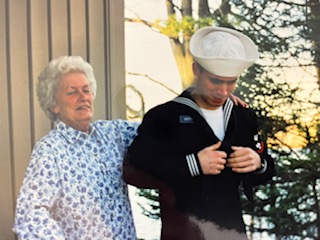 “I think I joined the Navy.” This is what Nick said on one of our after-school phone check-ins. He was always sure to give me a call when he arrived home from school. The difference on this day was that he was calling when he returned home from an overnight in Boston where he had a physical with the Navy. Nick had taken the day off from school. He used a voucher he earned for doing some community service work at a local school. I knew immediately that he had joined the Navy. Playing along with him, I said, “Don’t you think you should find out if you joined?” He giggled, said he’d call me back and hung up. Two minutes later, “I joined the Navy.” The next words out of my mouth were, “Congratulations, Nick. Now, whatever you do, don’t tell your grandmother!”
“I think I joined the Navy.” This is what Nick said on one of our after-school phone check-ins. He was always sure to give me a call when he arrived home from school. The difference on this day was that he was calling when he returned home from an overnight in Boston where he had a physical with the Navy. Nick had taken the day off from school. He used a voucher he earned for doing some community service work at a local school. I knew immediately that he had joined the Navy. Playing along with him, I said, “Don’t you think you should find out if you joined?” He giggled, said he’d call me back and hung up. Two minutes later, “I joined the Navy.” The next words out of my mouth were, “Congratulations, Nick. Now, whatever you do, don’t tell your grandmother!”
Two years before this my oldest son enlisted in the Marines right after graduating high school. It was so interesting to me being a single parent for most of the kids’ lives. Never did I think I would be waving good-bye, watching them get into a car leaving for their first day of bootcamp. I was not one to influence my children’s future; I was a parent who supported them in whatever they wanted to do. Peer pressure seemed minimal for them. I encouraged them to follow their hearts and do what they wanted to do – not what someone else wanted them to do.
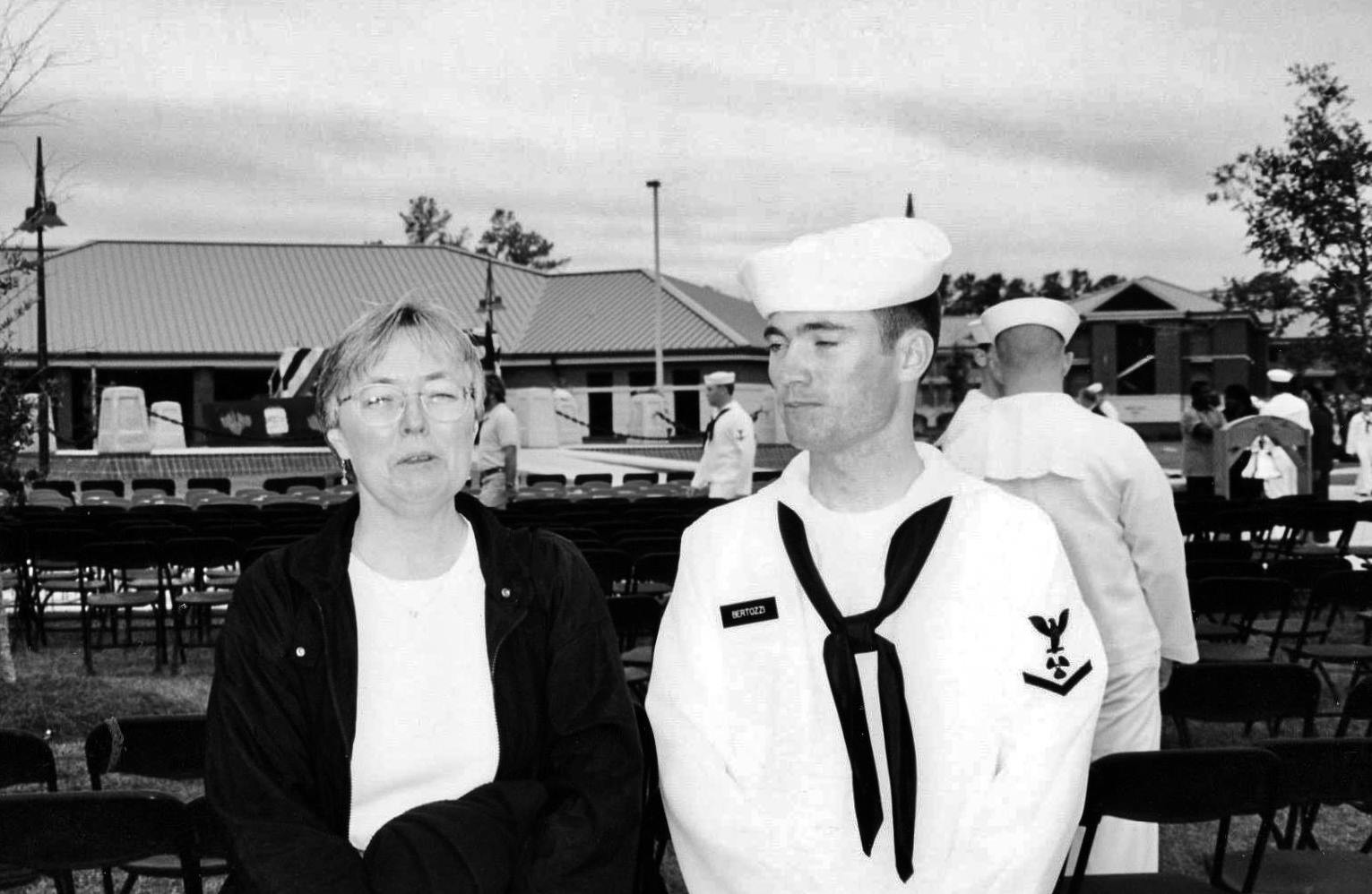 When I learned that Nick wanted to look at the Navy as a possible option, I admit I was a little surprised. My Marine had been talking about being “an army man” since he was about ten years old, so his decision was not a surprise, whereas Nick had never talked about the military. His stepfather and I had been looking at colleges with him, but it felt like he was humoring us more than anything else. Maybe he had already made up his mind and just didn’t tell us.
When I learned that Nick wanted to look at the Navy as a possible option, I admit I was a little surprised. My Marine had been talking about being “an army man” since he was about ten years old, so his decision was not a surprise, whereas Nick had never talked about the military. His stepfather and I had been looking at colleges with him, but it felt like he was humoring us more than anything else. Maybe he had already made up his mind and just didn’t tell us.
He scheduled an appointment with the Navy recruiter to discuss his options. He asked me if I would drive him to the recruiting office, which I did. When we arrived, Nick introduced me to Bruce, the recruiter he had met at school. Bruce had suggested Nick take a mock test, to see what job he would qualify for. Before Nick took the test, Bruce asked him what his favorite subject was. “Physics” was his answer. Bruce’s eyebrows raised. His next question was, “what do you do for fun?” Nick shrugged his shoulders. I happened to be sitting next to him, so I nudged him and whispered, “what about flying?” “I like to fly” he said to Bruce, who responded with “airplanes?” Nick had jut turned seventeen, so Bruce thought he should clarify “flying.” Nick told him that he had his private pilot’s license and flew as often as he could. By this time, Bruce looked as though he caught the big one.
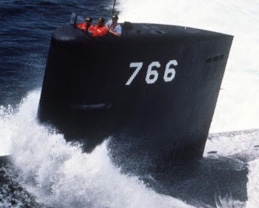 Bruce then showed Nick to a computer at the back of the room and gave him a pad of paper and a pencil. I sat with Bruce across the room from Nick. I asked Bruce what the pad of paper and pencil were for, and he said it was in case Nick needed to do a calculation by hand. I think I saw Nick use the pencil once. After about 15 minutes, Nick looked over at me and made a funny face, which I interpreted as if he was finished and didn’t know what to do next. I told Bruce that I thought Nick was done. When I said that, Bruce looked curious. It was quite comical. He said he would go see what Nick needed, but it turned out that Nick didn’t need anything; he was done with the test – in record time. They walked back towards me. “Let me go calculate your grade, Nick, and I’ll be right back.” While we were waiting, I asked Nick what it was like. He swore there were trick questions in the test. He did the best he could. Bruce returned and told Nick he had done well. He wanted Nick to take the “official” test and added that he thought Nick would qualify for the Navy’s Nuclear Power School – is that something he’d be interested in? That was NOT what I was expecting. I learned after his death that he entered the service under the nuclear program that is open only to the top three percent of the Navy’s top ten percent.
Bruce then showed Nick to a computer at the back of the room and gave him a pad of paper and a pencil. I sat with Bruce across the room from Nick. I asked Bruce what the pad of paper and pencil were for, and he said it was in case Nick needed to do a calculation by hand. I think I saw Nick use the pencil once. After about 15 minutes, Nick looked over at me and made a funny face, which I interpreted as if he was finished and didn’t know what to do next. I told Bruce that I thought Nick was done. When I said that, Bruce looked curious. It was quite comical. He said he would go see what Nick needed, but it turned out that Nick didn’t need anything; he was done with the test – in record time. They walked back towards me. “Let me go calculate your grade, Nick, and I’ll be right back.” While we were waiting, I asked Nick what it was like. He swore there were trick questions in the test. He did the best he could. Bruce returned and told Nick he had done well. He wanted Nick to take the “official” test and added that he thought Nick would qualify for the Navy’s Nuclear Power School – is that something he’d be interested in? That was NOT what I was expecting. I learned after his death that he entered the service under the nuclear program that is open only to the top three percent of the Navy’s top ten percent.
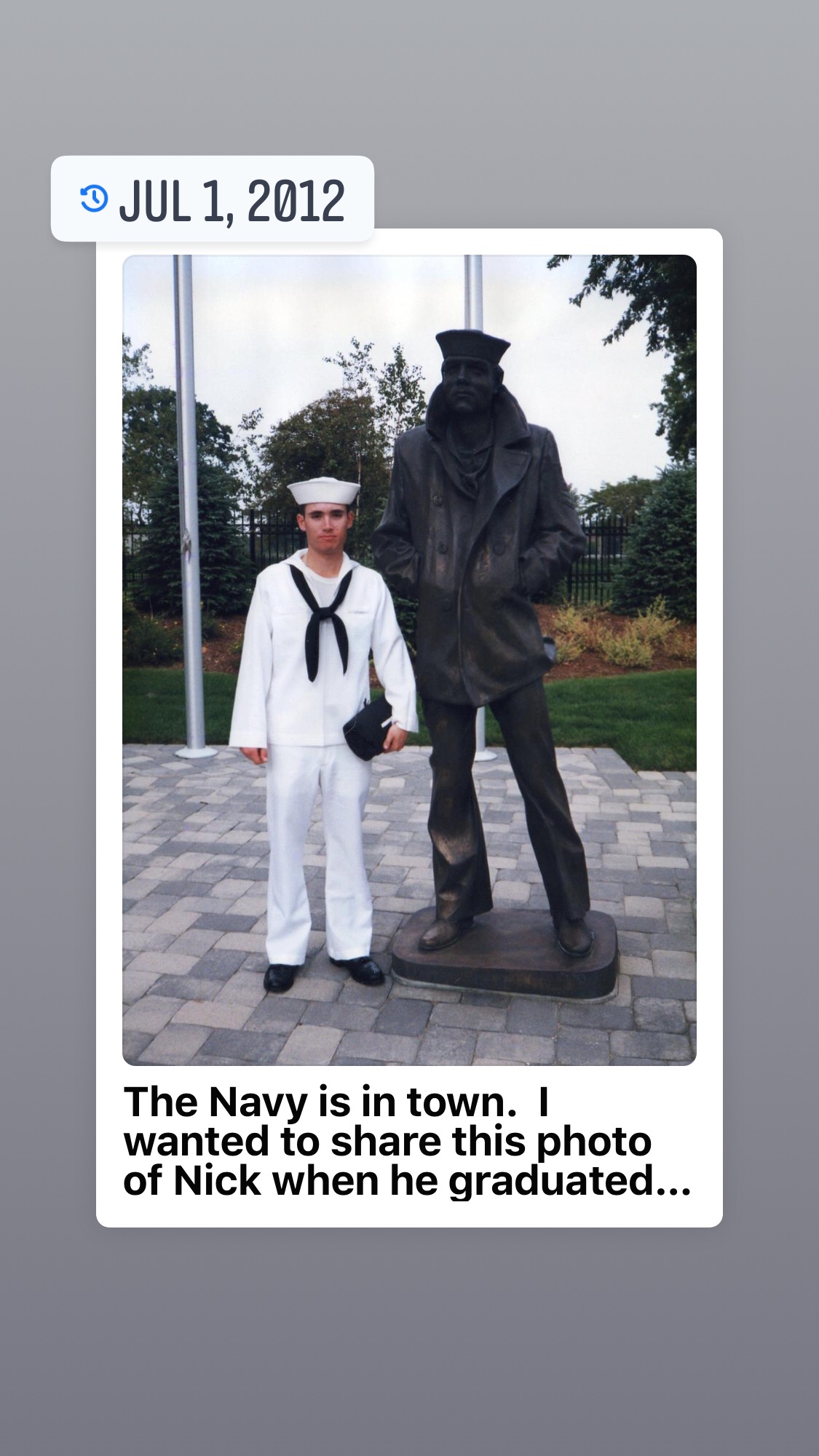 It seems like it was only days after meeting with Bruce that I received the “I think I joined the Navy” call.
It seems like it was only days after meeting with Bruce that I received the “I think I joined the Navy” call.
Autumn is my favorite time of year, or should I say it used to be. With holidays like Veterans Day, Thanksgiving and Christmas, this has become a very difficult time of year. My therapy since Nick was killed is to write, so writing a story about Nick and his service to his country is fitting. What better subject to address than my admiration for my two sons as well as all our veterans who have served, which includes my Dad and his brother.
Nick would have celebrated his 44th birthday this year. He died by suicide in May of 2012. Since his death, we celebrate his birthday by going out to eat. This year we decided to spend some time on Cape Cod, one of Nick’s favorite places. On our way to the Cape, we often stop at a Canal rest area where there happens to be a memorial for the U.S.S. Cisco, which was my great uncle Eddie’s boat. (Did I mention that submarines are called boats?) The Cisco was sunk by Japanese planes off the coast of Australia in WWII. When Nick was preparing for his Navy adventure, he did some research on the Cisco. I had no idea he had been considering submarine service. All submariners, as they are called, volunteer for submarine service. He hoped that he would qualify.
The things I have learned about my son continue to surprise me. He was always one to research, to better know what he was getting into. A prime example was his research of the Cisco. Nick wanted to know more about his great uncle. I was glad he did, because I had no idea what happed to him other than that he was killed during the war. I also think back to when my kids were young, ten and under. My father used to tell them stories of his service in the Navy during WWII. He had enlisted after his brother and planned on becoming a submariner himself, but when my uncle was lost at sea, my father had to change his plans, so he became a Navy Sea Bee. What really caught our attention was the date my uncle’s boat sank. It was on September 28th, 1943. Nick’s birthday was September 28th. Feel the goosies?
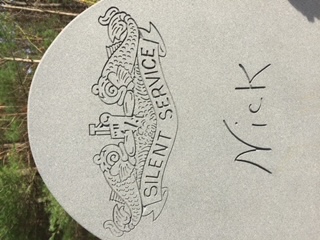 I now have the greatest respect for anyone who serves on a submarine. When Nick was killed, I was interviewed by a detective from the railroad. He investigated train kills for Amtrac. He was very familiar with the military and asked me if I realized that 75% of submariners come from broken homes. I was shocked. Nick came from a broken home. It seems that life in a steel tube with no windows is not for everyone. It fosters an intimacy that is unique to military personnel. If you know a submariner, you will probably describe them as courteous and considerate. Nick’s four years serving on the Charlotte changed him. I now believe he was an empath going in, so connecting emotionally and cognitively as they do would be easy for him, but it took its toll in the end.
I now have the greatest respect for anyone who serves on a submarine. When Nick was killed, I was interviewed by a detective from the railroad. He investigated train kills for Amtrac. He was very familiar with the military and asked me if I realized that 75% of submariners come from broken homes. I was shocked. Nick came from a broken home. It seems that life in a steel tube with no windows is not for everyone. It fosters an intimacy that is unique to military personnel. If you know a submariner, you will probably describe them as courteous and considerate. Nick’s four years serving on the Charlotte changed him. I now believe he was an empath going in, so connecting emotionally and cognitively as they do would be easy for him, but it took its toll in the end.
Submariners are cloaked in mystique. Why would someone want to volunteer for submarine duty? Submerging the boat into an ocean that is “as foreign and hostile as outer space,” sleeping in a 6 x 3 x 2-foot cubicle and watching out for flying objects during a 30 degree downing (also known as a dive.) They cannot communicate with family or friends, only with each other. They need to be independent, yet living in those conditions, their minds merge into one. I’ve often heard people who don’t understand military life say that these very young men are brainwashed. I believe otherwise. If I were on a submarine, I would want to know that my mates had my back, that I could truly depend on them.
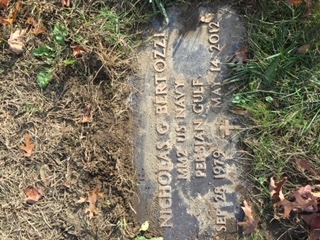 Both of my sons were in the military during 9/11. My oldest was stationed at the Embassy in Stockholm, and Nick was stationed at Pearl Harbor. I was able to talk to my oldest in Stockholm a few days after the attack, but Nick had been called to the boat, probably while the Twin Towers were burning to the ground. He told me later that he and his mates had no idea what was going on. They thought it was one of their constantly occurring drills, and because there is no communication, none of the sailors knew what had happened until they got back to Pearl a couple of weeks later.
Both of my sons were in the military during 9/11. My oldest was stationed at the Embassy in Stockholm, and Nick was stationed at Pearl Harbor. I was able to talk to my oldest in Stockholm a few days after the attack, but Nick had been called to the boat, probably while the Twin Towers were burning to the ground. He told me later that he and his mates had no idea what was going on. They thought it was one of their constantly occurring drills, and because there is no communication, none of the sailors knew what had happened until they got back to Pearl a couple of weeks later.
All of this I write to help me better understand my son who lost all hope at the age of 32 and died by suicide. How did this happen? I know that as a teenager, he was somewhat moody, but I didn’t see what I would call depression. I believe what affected him most was the losses he had experienced in his short life: divorce, death of his stepdad, death of his stepdad’s father whom he was very close to, and finally the loss of his grandfather the Sea Bee. And the loss of our family dogs: Maude the Great Dane and our infamous mut Jessie.
The last conversation I had with him during his senior year in high school was that maybe he’d take a year off from school and do something different, something mindless. I would believe that when I saw it. Well, I didn’t see it because he decided to join the Navy. I soon realized how little I knew about life in the Navy. My youngest child was to withstand simulated flooding exercises, constant firefighting drills, and sleep deprivation. Because he qualified for Nuclear Power School, his nuclear power schooling started right after boot camp.
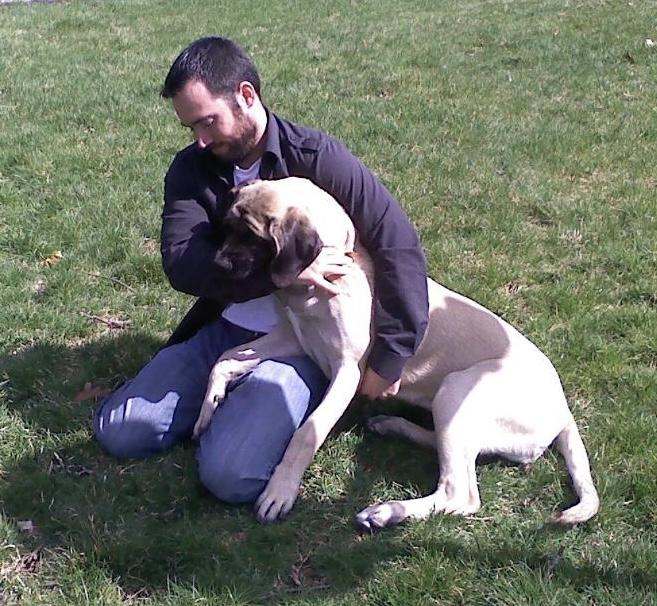 One of our first conversations during Power School was about the difficulty factor. He said it was like drinking water out of a fire hose. Everything they were learning was top secret, so they couldn’t bring books back to their rooms or any other place to study. I was shocked when I heard that one of the first classes they took was about suicide watch. They were taught the signs of suicide and expected to watch out for each other. Over the next few months, I heard stories of suicide attempts, so yes, it was commonplace in such a high-stress environment. Nick couldn’t understand how someone could go so far as to attempt suicide. His attitude was, “If I don’t get through this, I’ll go for sonar.” He did not appear worried enough for me to worry about him, even after he told me that you could not miss class or you would be out – let go. High fevers, vomiting, and everything else you could imagine were not excuses to miss a class. That I found to be pretty intense, however, when I learned more about life on a submarine, I realized that submariners needed to be available for anything that happened.
One of our first conversations during Power School was about the difficulty factor. He said it was like drinking water out of a fire hose. Everything they were learning was top secret, so they couldn’t bring books back to their rooms or any other place to study. I was shocked when I heard that one of the first classes they took was about suicide watch. They were taught the signs of suicide and expected to watch out for each other. Over the next few months, I heard stories of suicide attempts, so yes, it was commonplace in such a high-stress environment. Nick couldn’t understand how someone could go so far as to attempt suicide. His attitude was, “If I don’t get through this, I’ll go for sonar.” He did not appear worried enough for me to worry about him, even after he told me that you could not miss class or you would be out – let go. High fevers, vomiting, and everything else you could imagine were not excuses to miss a class. That I found to be pretty intense, however, when I learned more about life on a submarine, I realized that submariners needed to be available for anything that happened.
Nick’s sense of humor, albeit a little dark, was something people loved about him. He was telling me about his new roommate, a kid from Mexico. I asked him on one of our calls how his new roommate was doing. He said he was okay. “I just left our room. He’s sleeping.” Silence on both ends of the phone. Then Nick said, “Maybe I should go back and check on him” and then giggled as only Nick could. He was joking with me.
Some submariners wash out during their first year. Submariners are considered the elite ten percent of the Navy. Two percent never make it. No letters, no mail, no TV.
A close-knit group, they are secret, silent, and mysterious. Very few family members know what they do. As Nick would say, “If I told you I’d have to kill you.” Seriously? Then don’t tell us. They are sensitive, hard-core, strong-minded, and strong-willed with a hard shell. They must keep their little worlds to themselves, holding things in, not sharing. There is a strong sense of belonging in an unnatural world. These men are different. Yes, my son returned home a man, a man who even though he retired, never really left his boat. Such a strong sense of belonging.
Nick served for six years in the Navy. The first two years were nuclear power school and then four years on his boat, the U.S.S. Charlotte, a Los Angeles Class attack sub. The day he graduated school, the Navy flew him to Japan to meet his boat. There was no time for family, not even a celebratory dinner. It was a quick goodbye and off he went.
We would get phone calls from Nick every once in a while, some in the middle of the night because he had no idea what time it was at home. I didn’t care. It was great to hear his voice. I’ll always remember the time he called me to let me know he wouldn’t be able to send me a birthday card because of his schedule. It was February; my birthday was in March. Birthdays were so important to Nick. I told him not to worry about it. I asked him if he had qualified for his Dolphin pin yet. He was working on it. I shared an idea with him. Instead of getting a birthday card for me, pass the Dolphin pin test.
I am sure he was ready for it, but he had this habit of wanting to pass any test at 100%. I’ll never forget when he took his driver’s certificate test on a computer, as soon as he answered enough questions to get the certificate, the test ended. He was so angry when he came out to the car where I was waiting. He told me he passed, but the computer wouldn’t give him any more questions once he answered enough questions correctly. He felt tests were less than complete if you were not able to take the whole test.
When Nick returned home from Pearl Harbor in 2004, he was different. He told us the Navy took all his patience. Over the years I have had conversations with former military. I now understand how difficult it is for them to transition into civilian life. The way I reacted to him in the first weeks of his return home didn’t help. I didn’t understand how he was feeling, but without saying anything, he knew that. This is the only regret I have – that I was unable to help him transition.
Here are some more interesting facts about submarine life that I found on www.liveabout.com.
-Submariners are stuck in an enclosed environment with no sunlight and close quarters. They call a 360-foot-long steel boat with no windows “home.”
-Little access to the sun makes it hard to detect the passage of time, which may disrupt sleep patterns.
- Most people, many Sailors included, think submariners are crazy. But like any family, when nobody else understands them, they understand each other.
- The submariner will say that being submerged at 400 feet is just like sitting on your couch in the living room.
“Earning your Dolphins [the Submarine Warfare insignia] is what signifies to the rest of the crew that you can and will be trusted with our lives,” said Electronics Technician 2nd Class (SS) Joseph Brugeman. When a new Sailor reports aboard any submarine and gets his boat’s submarine warfare qualification card, he’ll find blocks for pneumatics, hydraulics, sonar, and even the weapons systems. What he won’t find is the very thing that wearing Dolphins is all about—trust.
“Wearing Dolphins means much more than knowing how to draw all of the boat’s hydraulic, steam, electronic, and air systems,” said Culinary Specialist 3rd Class (SS) Jeff Smith. “It means more than being able to explain how a drop of seawater outside the boat makes it into your cup in the galley. No, wearing Dolphins means that the crew trusts you to know how to save the boat regardless of the casualty, and regardless of your rating or rank. Earning that trust makes you much more than a professional sailor, it makes you a member of the submarine family.”
“We practice responding to casualties so much that we do it instinctively,” said MM2(SS) Jim Crowson. “Our training has to be instinctive. Otherwise, we might get scared first instead of responding if the real thing ever goes down. At 400 feet, there’s no time to be scared. I’m not trying to sound macho–it’s just the reality of how to survive when all you may have are seconds before the boat sinks below crush depth.”
Despite going to sea on a boat with no windows, no fantail, no helipad, and not even a hatch to allow in some tension-breaking fresh salt air, submariners are still sailors at heart. These brothers volunteer for submarine duty and their commitment is no different than the sailors on aircraft carriers, cruisers or even tugboats.
They love their country, uphold the Navy’s core values of honor, courage, and commitment, and want to make it back safely from every deployment. As the silent service, though, they’d just rather you didn’t talk about it.
I hope you enjoyed this story and feel that you’ve received a quick course on submariners. My pride shows when I talk about my son and his service in the Navy. My heart is sad that I did not know more about my son’s life, which may have helped me to help him in his worst days. My quest is to bring about awareness to those who are unfamiliar with life in the military and to bring support to the men and women serving.
BIO:
 Wendy lives in Norton, MA, is married, has two children (one living and one deceased), and two grandchildren. She is very proud of her two sons, who both joined the military out of high school and during their enlistment became non-commissioned officers. In May of 2012, Wendy lost her youngest son to suicide. She has had many personal challenges in her life, but the suicide has been the most extraordinary.
Wendy lives in Norton, MA, is married, has two children (one living and one deceased), and two grandchildren. She is very proud of her two sons, who both joined the military out of high school and during their enlistment became non-commissioned officers. In May of 2012, Wendy lost her youngest son to suicide. She has had many personal challenges in her life, but the suicide has been the most extraordinary.
For over 18 years, Wendy has worked with a nutritional supplement company that uses the direct sales business model. Also 18 years ago, she and her husband founded a more traditional company - a septic pumping company that they called Pump Grump. The company’s tagline was “You’ll be happy with the grump.” She believes they reached excellence in branding with that name.
Wendy’s specialties include sales, networking, training, team building, speaking, writing, and editing. Upholding the importance of integrity and using humor are her two mainstays.
You can connect with Wendy through her
Blog:https://www.wendyjuergens.com/
LinkedIn:www.linkedin.com/in/wendyjuergens
Facebook: www.facebook.com/wendy.juergens
Business: https://wendyandbuddy.biz






